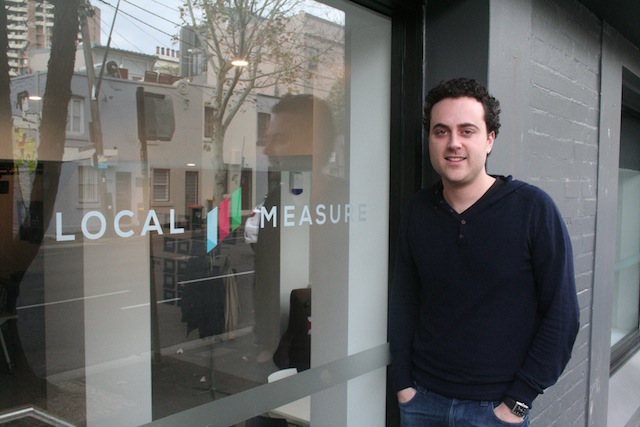Last night some of Australia’s best small and medium businesses were celebrated at the 2013 Telstra Business Awards. There were lots of happy winners, particularly Tasmania’s Bruny Island Cheese Company who won the overall prize.
Speaking at the business awards, previous winner Jason Wyatt of Sydney’s Bike Exchange mentioned some the “stumbles on the way” and keynote speaker Mark Bouris described some of those ups and downs.
“Accept the downside and dream of the rewards on the upside” advised Bouris.
Sometimes though those upsides are hard to find, behind the glamour and glitz of having a successful enterprise the toll on proprietors’ mental health can be tough and this month’s Inc magazine looked at the psychological downside of running your own business.
Running your own business – whether it’s a plumbing service, cheese company or a tech start up – is hard work and risky with not everybody suited to the often demanding lifestyle.
If you aren’t suited to running a business, or you’re unprepared, then those mental health costs can be high.
My own experience is instructive, in fact it’s a case study of what not do as a business founder covering everything from being undercapitalised to choosing bad business partners.
Find good business partners
Running a business alone is a mistake, partly because few have the full range of skills required to successful run an enterprise and mainly for the fact being a sole trader or boss is a lonely, isolated experience.
A business partnership though is like a marriage and it’s just as important to choose those co-founders as carefully as you would a spouse.
Good business partners have the skills that complement yours – if you’re good at sales or the technical side of the business then you’ll probably need someone good at the administrative or accounts side. Business is a team effort.
What’s very important is that all the partners in the business respect each others’ strengths and understand their own weaknesses. This makes a powerful team.
Probably the most therapeutic thing about having trusted business partners is that you have a sympathetic sounding board. At the very least you kick back on a Friday afternoon and have a bitch about your customers, staff and the government. That in itself is very important in keeping sane.
Watch the money
One of the biggest problems in business, and one I’ve encountered many times, is that many people don’t understand the difference between cash flow and profit. They see the money in the bank and they spend it.
If your business partner has blown the company’s working capital on a flash car and an overseas ski trip for the family, you can bet the clients, staff and creditors won’t be expecting them to clean up the financial mess.
Should you find yourself in that situation with your partners, get out of the business early before it wrecks your relationships and sanity.
Have sufficient capital
Stories abound of the successful business that was founded in a garage by a couple of penniless college grads and bootstrapped from nothing but they are the exception, not the rule.
While it is possible to bootstrap a successful business – I did it with PC Rescue – it’s a tough, hard road and having insufficient capital exponentially increases the chance of failure. Get some money from family, friends or fools.
Don’t hold out though for the million dollar capital raising though, the Silicon Valley investment model is only suitable for a tiny subset of business and it is possible to be over capitalised as we saw in the dot com boom of the early 2000s.
Stressing about money is one of the greatest problems for business owners and founders, having a little bit of capital makes commercial life a lot more enjoyable.
Watch your business plan
It’s fashionable to say business plans are useless – that is bunk. A business plan gives you some idea of how you expect to spend your money and where the revenue will come from. It’s a good reality check.
However, the 19th Century German general Helmuth von Moltke said “no battle plan survives first contact with the enemy” and it’s true that even the best business plan won’t survive first contact with the customer.
That’s fine because tweaking your business plan in the early days will give you more understanding and control over your business. More control means less stress.
Pivot when necessary
Some of the world’s most successful businesses were started as something completely different, Microsoft being one of the best examples. When it turns out the market doesn’t like your original idea but there’s a similar but different opportunity, grab it.
Executing a business pivot can be time consuming and stressful, but it’s far better for your finances and mental health than riding a failed business plan into oblivion. If you’re the type that enjoys building businesses, then you’ll probably find a business pivot is fun.
Take a holiday
I cannot emphasise this enough. In PC Rescue I went ten years without a holiday. It was a stupid mistake and both my family and my own health suffered for this.
Create limits
Micheal McQueen points out that Baby Boomers are poor at creating limits to their worklives, for many it’s a matter of pride in working punishing long hours. In small or startup businesses there’s no shortage of opportunities to work twenty-two hour days.
The difference with working 90 hour weeks for the law firm or bank is that managers have a nice salary, sick leave and workers compensation. As a proprietor you don’t and in doing so you’re putting undue on yourself, your business partners and your family by working too hard.
Delegate
One key to success is finding good employees – this is something I totally suck at. While I’ve had the privilege of hiring a few good people, I’m spectacular at finding duds.
Being able to delegate is one of the key skills to business survival, it allows you leave work at a decent hour, take that holiday and – most importantly – get time to think strategically. If the owners, founders or managers can’t delegate then the business potential is limited and the risk of burn out is far higher.
Sack the troublemakers
Something that always bemuses me is how small business owners constantly moan about staff. While it’s true one dud staff member can cause untold damage to a business, bad customers are far, far worse.
Pareto’s law – otherwise known as the 80/20 rule – comes into play here. 80% of your troubles will come from 20% of your customers and rarely will the slow playing, demanding troublemakers be your most profitable clients.
If you’re in business long enough you’ll eventually encounter the psychopaths who actually enjoy stringing out invoices or creating commercial disputes. It’s your duty to your own sanity to get these people out of your life as quickly as possible.
So sack them, write off their debts and get them out of your business. Your time on this earth is too short to be dealing with bad payers, the crazies or the one percenters who get their kicks from screwing other people around.
Watch the warning signs
“Five years in tech support will turn you into an axe murdered, I did twelve” is a joke I often make.
There’s a strong element of truth in that line though as IT support in particular is a stressful, thankless trade and running a business in that sector exposes you to a lot of negativity.
While I genuinely enjoy customer service, tech support and running a business I hadn’t realised just how that negativity and stress was affecting me.
It was only when I noticed the signs of stress in a couple of my good contractors that I started researching depression in the IT industry and did the Beyond Blue K-10 anxiety and depression checklist. The results weren’t pretty.
The exit from PC Rescue and IT support in general started shortly afterwards.
In retrospect I’d stopped enjoying the business and dealing with customers about five years earlier and that should have been the warning sign to get out.
“Love what you’re doing” was Jason Wyatt’s advice at the Telstra Business Awards and he’s absolutely right – the moment you stop loving your business is when it’s time to start looking for something else.
Similar posts:




